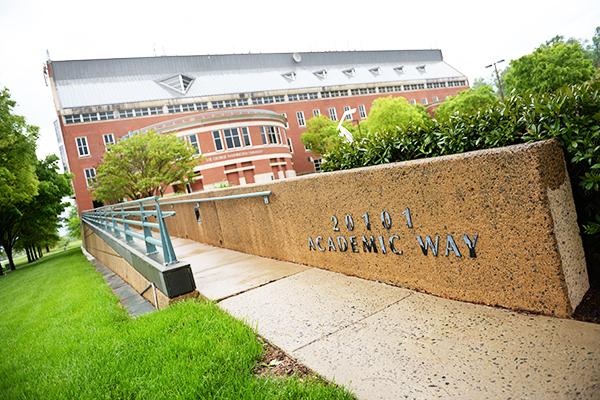
About 35 miles from downtown D.C., the Virginia Science and Technology Campus neighbors the corporate offices of tech giants and data centers for some of the biggest names in Internet-related services.
After decades of quiet growth in Northern Virginia, GW and corporations are now ushering in a massive redrawing of the region that will create thousands of technology jobs and make Ashburn, Va. one of the world’s top tech epicenters.
GW and three local tech firms released a report Friday, finding that the big data boom will bring 20,500 jobs to the D.C. area over the next three years, and those positions will likely be filled by recent graduates.
Data jobs in national security, health care and education will quickly open up – helping fuel big data’s reputation as the modern-day gold rush. Anne Altman, the general manager of the U.S. federal government sector at IBM, described big data as the “new natural resource.”
“We’re moving into an area of prosperity,” Altman said. “There’s opportunity for economic development and economic prosperity.”
GW has already taken advantage of the tech sector in Northern Virginia, and last year partnered with IBM to create a master’s in business analytics. The computational biology institute on the campus and other local institutions already offer courses in different types of data and analysis.
Science and technology majors at GW have grown in popularity in recent years as the University looks to expand its research presence in those fields. There were 122 computer science majors in the School of Engineering and Applied sciences in 2013, a 23 percent increase from 2009.
Just 14 students were statistics majors last year, up from 6 students in 2009.
The report also points out a talent gap in the field, which means students are learning skills that are different from the ones businesses and federal agencies want to see.
Keith Crandall, director of GW’s computational biology institute, said he builds his classes, he reaches out to people working in related industries when designing his courses, so he can build classes that teach the most sought-after skills.
“I developed a curriculum that did that – it gave those kids those skill sets,” he said, adding that a quarter of students involved with institute were quickly hired. “Graduates had all kinds of options.”
Experts say GW will play a large part in how the region’s data industry develops, and what students learn in the classroom will determine the success of local analytics firms.
Companies across the nation are seeking young graduates with skills in multiple tech fields like computer programming, said Gary Shiffman, chief executive officer of the analytics company Giant Oak.
“That’s who I’m looking for. That’s who Facebook’s looking for. That’s who Google’s looking for,” Shiffman said.
Graduates with degrees in technology-related fields have abundant options in the region, said Greater Washington Board of Trade President and CEO Jim Dinegar. He pointed to about 19,000 open tech jobs in Maryland.
“If you graduate from GW with a computer science degree or anything approaching a computer science degree and are interested in the cyber world, you can pretty well write your own ticket,” Dinegar said.
He added that GW graduates will be able to take advantage of the new job growth because they have a head start at making connections in the area.
Many of GW’s top science professors already conduct their research in Virginia through programs like the computational biology institute, which combines big data analytics with life sciences research.
The Virginia Campus’ strategic plan also calls for professors there to work more with local companies because those connections give them an edge over competing programs.
Harry Wingo, president and CEO of the D.C. Chamber of Commerce, said universities in the District need to do more to attract professors who are skilled in technology-related areas, like coding and mobile computing, to encourage growth of the sector.
Wingo lauded Mayor Vincent Gray’s five-year economic development plan, released in November 2012, which will look to make D.C. the largest hub for technology on the East Coast.
In November 2012, Gray signed the D.C. Tech Initiatives program, which aims to make financing tech startups in the city easier by subsidizing the investors’ and the company’s taxes.
“There’s great opportunity to increase the tech presence that we have here. I think that there’s a lot more that we can do on that front,” Wingo, a former Google executive, said.







